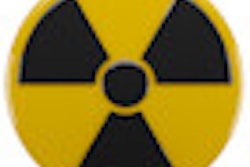New findings regarding the genetic mutations that cause head and neck cancer may lead to new therapies, according to collaborative research presented in November at the 2012 Chemotherapy Foundation Symposium in New York City.
Aaron Tward, MD, PhD, and colleagues analyzed tumor samples provided by the University of Pittsburgh from 92 patients with head and neck squamous cell carcinoma (HNSCC), according to an article on onclive.com.
Patient samples were chosen to reflect the normal distribution of patients with these cancers -- that is, mostly men and smokers, noted Dr. Tward. Of these patients, 89% reported a history of tobacco use and 79% alcohol use; 14% of all tumors and 53% of oropharyngeal tumors were found to be positive for human papillomavirus (HPV).
Tumor sites also were selected to be roughly representative of the general HNSCC patient population -- that is, most were oral cavity cancers, followed by a substantial proportion of oropharynx cancer samples and a few from patients with hypopharyngeal or laryngeal tumors.
Investigators used hybrid capture sequencing to compare tumor tissue and nontumor tissue from the same patient. They also compared the total number of mutations in the HNSCC samples with samples from previous tumor studies.
The analysis yielded a large number of mutations. For example, 5,000 genes had at least one mutation, and 1,300 had at least two, the researchers reported. Dr. Tward emphasized, however, that most of these are not implicated either in promoting or maintaining the cancer. He said the vast majority are "passengers" -- that is, mutations alongside another mutation that acts as a "driver."



















